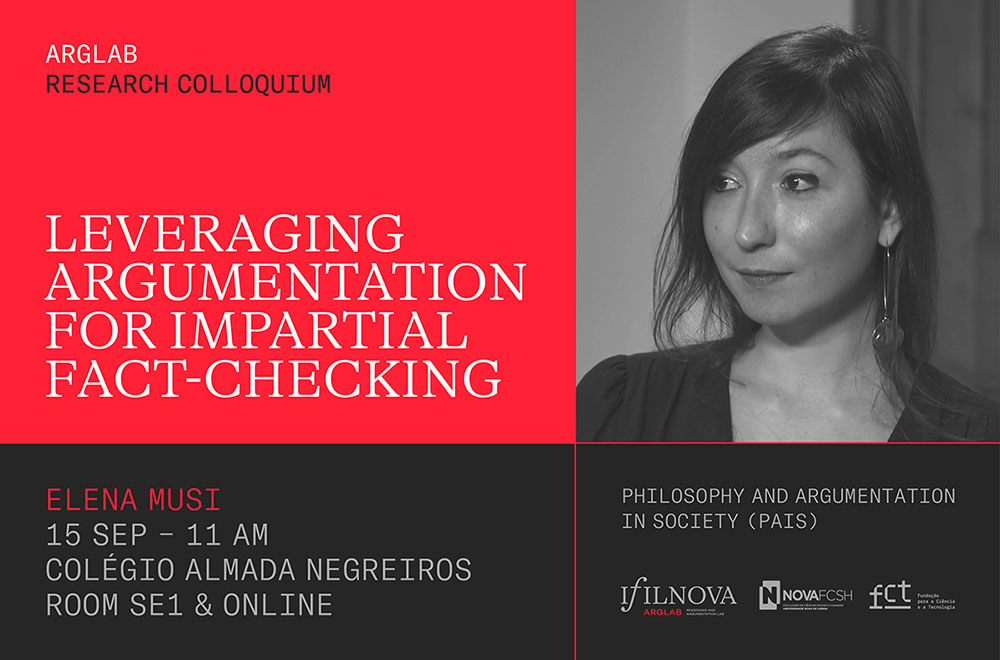Elena Musi on “Leveraging Argumentation for Impartial Fact-checking”

In the current (mis)information ecosystem, the lack of impartiality is frequently used as an argument to attack the credibility of news media venues, as well as to undermine the trustworthiness of fact-checkers. The impartiality of news, regardless the source, in a polarized social media world, is not common ground knowledge, but it constitutes a standpoint that has to be constantly argued for. To evaluate the impartiality of the fact-checking process is, however, first necessary to define its meaning when applied to the (mis)information ecosystem. To this goal, in the frame of EMIF LATIF project, a large scale corpus analysis (news media codes of principles and scholarly articles) around the notions of impartiality and fallacious reasoning (cognition biases) in news media is carried out, matched with two rounds of qualitative focus groups with practitioners (journalists, fact-checkers and communication gatekeepers). Social network analysis, natural language processing techniques and argumentative discourse analysis are then applied to surface argumentative patterns around the impartiality controversy and its relation with fallacious reasoning. The results show that while a standard definition of impartiality is currently missing, the identification of fallacious reasonings induced by the (mis)information ecosystem shed lights on best practices for impartial factchecking.
Elena Musi (University of Liverpool)
To join the session on Zoom, please get in touch with Maria Grazia Rossi at mgrazia.rossi@fcsh.unl.pt for the details.
This event is part of the ArgLab Research Colloquium organised by Maria Grazia Rossi, Giulia Terzian and Gloria Andrada at the Laboratory of Argumentation, Cognition and Language of the NOVA Institute of Philosophy. For any inquiries, please contact Maria Grazia, Giulia, or Gloria.

